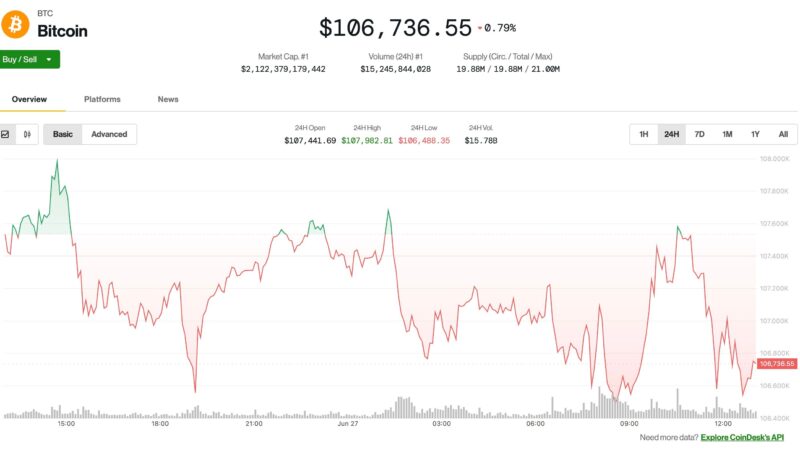Swiss banks and digital assets: impressions of the cvj.ch Summer Soirée

The cvj.ch Summer Soirée in the Zurich offices of Gentwo brought leading voices from Swiss Digital Asset Banking for an open discussion about the status of cryptocurrencies in the traditional financial world.
Despite the rainy weather that moved the planned barbecue into the house, the mood was excellent when numerous financial specialists gathered for an evening full of insights and networking. The panel discussion, moderated by Leon Curti, editor of CVJ.CH, offered five experts who are at the top of the digital revolution in Switzerland: Pascal Wyser from Incore Bank, Robin Lemann from Swissquote, Andri Gmünder from ZKB, Andy Flury von Wyden and Mark Arasaratnam by Gentwo Digital. Below we have summarized the most important findings. A big thank you to all panel participants and visitors for a great evening!
Unique position of Switzerland in the digital asset area
Switzerland now has more than 20 banks that offer crypto-asset services-a globally unique density in relation to the population. As Pascal Wyser from Incore Bank stated, Switzerland not only positions this as a traditional safe port, but increasingly also as a refuge for digital assets. “Switzerland has always been a safe Haven and it will always remain,” emphasized Wyser, referring to the education system, the strong Swiss franc and the robust economy as permanent advantages, which can of course be transferred to the area of digital assets.
The panel participants agreed that the early regulatory clarity of Switzerland was of crucial importance by the DLT law of 2021. This legislation remedied ambiguities with regard to the classification of assets and custody solutions and gave the Swiss institutions a clear framework on which they can build up. In combination with the country's financial heritage and the country's innovation ecosystem – including institutions such as EPFL – Switzerland has created an attractive environment for the development of digital assets.
Why banks are important in the crypto ecosystem
When asked why customers should prefer banks to crypto or ETFs, the panel gave several convincing reasons. Andy Flury put the problem of the risk of opponent in a nutshell: “We were all involved in one or the other in FTX … The safe custody of customer assets is what banks have been able to do for decades.” In contrast to crypto, where everything is mixed together – stock exchange trading, brokerage, lending and financing – banks adhere to strict separations with “Chinese Walls” between the departments. This structural difference offers the security that many investors, especially institutional, need.
But security is only the beginning. Andri Gmünder from ZKB emphasized the simplicity: “Customers want simple solutions, especially if they want to invest two or five percent of their portfolio in crypto-assets. You don't want to switch to a separate app.” The vision is clear: integrated asset management, in which cryptocurrencies can be found in a single interface alongside traditional assets. Robin Lemann added another important dimension: institutional requirements. “Think of the output of funds. We also offer the custody of funds or actively managed certificates, where you would rather have a bank for custody and maybe also for liquidity.”
The revolution of young customers
Perhaps the most interesting finding came from the experiences of the ZKB with customer demography. Gmünder reported that 40% of their crypto customers have never invested before and that the average age is significantly below that of traditional investment products. This indicates two crucial challenges for traditional banks that could solve cryptocurrencies: the extraction of younger customers and the involvement of first investors in the wider investment ecosystem.
As Lemann found, according to one Study of the University of Lucerne is interested in more than 50% of the younger generation of cryptocurrencies. “Sometimes they do not even have stocks or company shares. So it is also an instrument with which you can win customers and then persuade them to also diversify in other investment classes.”
Realities and challenges in implementation
For banks who want to offer digital assets, the panel provided sobering but practical insights into timetable and challenges. While Andy Flury mentioned that the fastest implementation of Wyden only lasted two months, Gmünder pointed out a development period of the ZKB offer, including the regulatory applications at FINMA from 18 to 24 months. The challenges are diverse. Mark Arasaratnam outlined the “three CS”: Compliance, Complexity (complexity) and Custody (custody). “How can a new and further developed regulation fit into an existing regulatory framework that has existed for 60, 70 years?”
The complexity also extends to integration-traditional banks have cash, fixed-income securities, foreign exchange and raw materials in various books, while digital assets are managed in a uniform blockchain Ledger. Flury emphasized how important it is for banks to find solutions from providers for custody, customer identification and trade, as they often have to struggle with integration. “We have to work better. We have to offer the banks an end-to-end service so that they have as little effort as possible.”
The future: from handling to advice
An important topic was the current restrictions on the crypto offers from Swiss banks. Pascal Wyser pointed out that “almost all offers from banks are pure execution orders (execution only)” in which customers have to “convince” their customer advisors of buying Bitcoin for them. This means that “over 95%” of the potential volume, which is located in large asset managers and pension funds, which are “very, very far from” investing in digital assets.
According to the discussion participants, the solution lies in the switch to consulting -based models. As Gmünder noted, this could be the crucial USP for banks: “As soon as banks start to offer consulting services or multi-asset portfolios with crypto allocations, it is something that we are currently not really seeing in crypto exchange.”
Outlook: tokenization and consolidation
When asked about the next wave after the simple crypto trade, the discussion participants agreed that tokenization would be an important trend. Lemann emphasized that there have been many tokenization projects for years, “but they were probably not comprehensive enough and too early. Today we see more fundamentally meaningful projects.” The discussion participants assumed that banks will offer comprehensive services for tokenized assets-from the storage of the underlying assets to the provision of liquidity to stock exchanges and custody and custom solutions.
This represents a natural development of currency stands on tokenized money market solutions, equity tokens and beyond. Mark Arasaratnam predicts considerable market consolidation: “Banks will take over crypto companies, crypto companies will take over banks.” As a harbinger of this development, he mentions the recent takeover of Bitstamp by Robinhood, through which Bitstamp won 24 million new customers overnight. The driving force? “What do you want? You want more returns,” said Arasaratnam. Since the market increases the risk curve from stable coins to money market funds to private loans (currently $ 14 billion on the blockchain), return products are increasingly blurred between traditional finance and defi.
The compulsory innovation
An important perspective resulted from the discussion about why banks should not simply outsource to existing providers. As Flury argued: “This new blockchain technology is indispensable … at some point any kind of asset will be token. Bank-capable assets, non-bankable assets will be token. Banks must therefore familiarize themselves with this technology.”
By building internal capacities instead of pure outsourcing, banks ensure that they develop the knowledge base required for a tokenized future. It is not just about offering the trade with Bitcoin, but also preparing for a fundamental change in the way all assets are created, traded and managed.
Most important knowledge
The panel discussion ended with a lightning round, in which, among other things, the unanimous support for Bitcoin against gold and the clear rejection of pineapple on pizza was expressed. Several important messages crystallized from the conversation:
- The regulatory clarity and financial infrastructure in Switzerland create unique advantages in the field of digital assets
- Banks offer security, simplicity and advisory skills that cannot offer pure crypto platforms
- Cryptocurrencies bring younger first investors to the banking system
- Implementation takes time, but the technological learning curve is essential for future competitiveness
- The relocation of pure execution services to consulting services will promote acceptance by institutional investors
- Token is the next large wave, for which banks now have to build capacity
When the evening ended up and the participants went over to networking, one thing was clear: Swiss banks no longer ask whether they should offer digital assets, but how they can further develop their offer to exploit the full potential of this transformation. The question is not whether traditional financial services and cryptocurrencies will grow together, but how quickly and completely this convergence will change the entire financial landscape.




